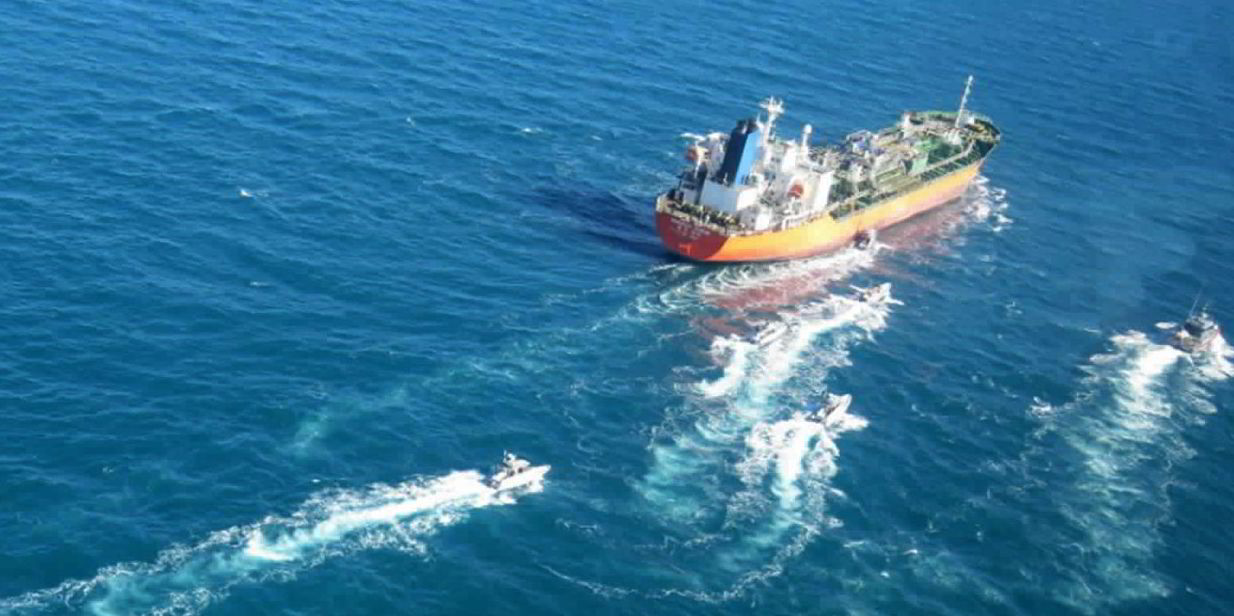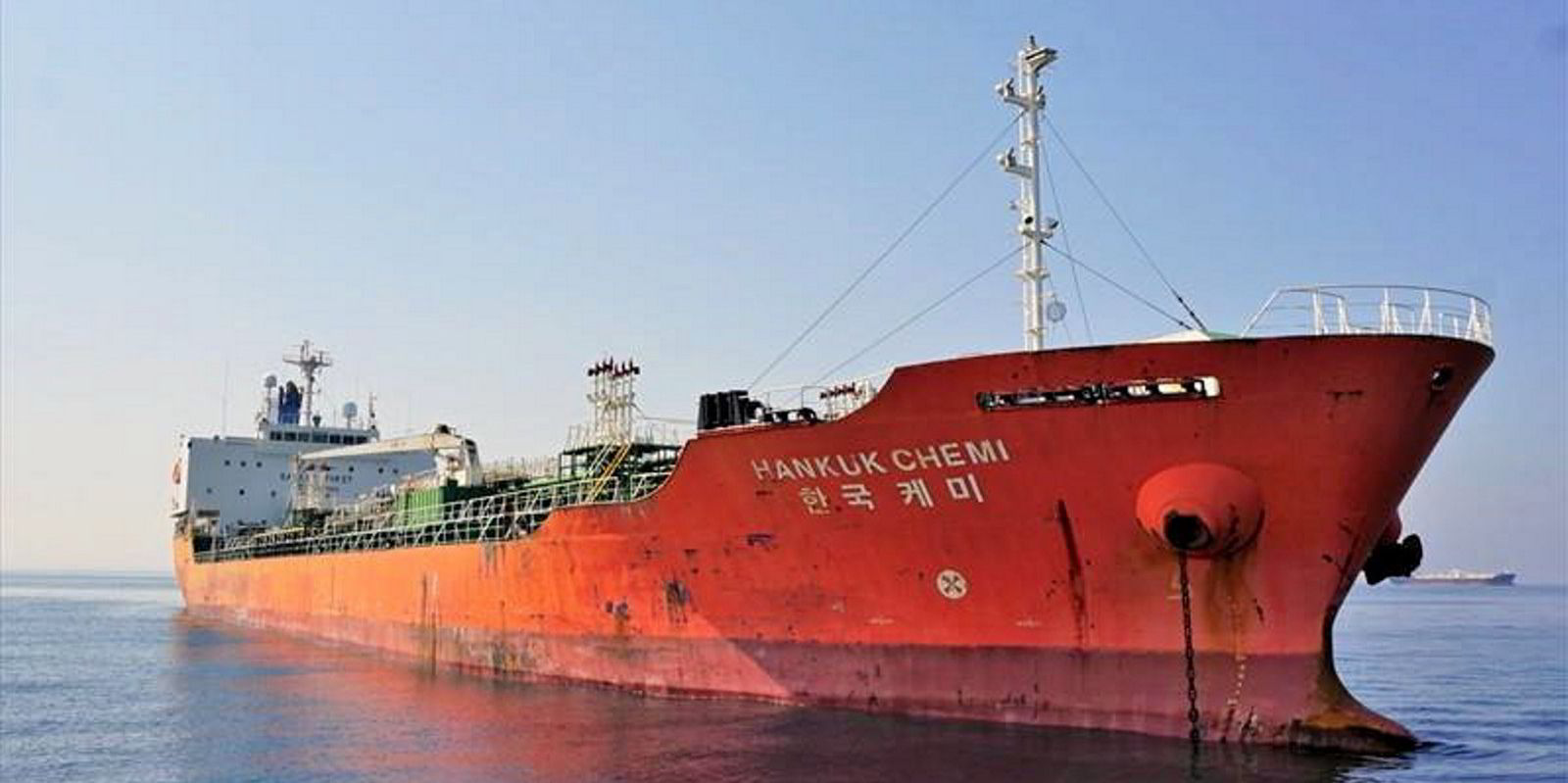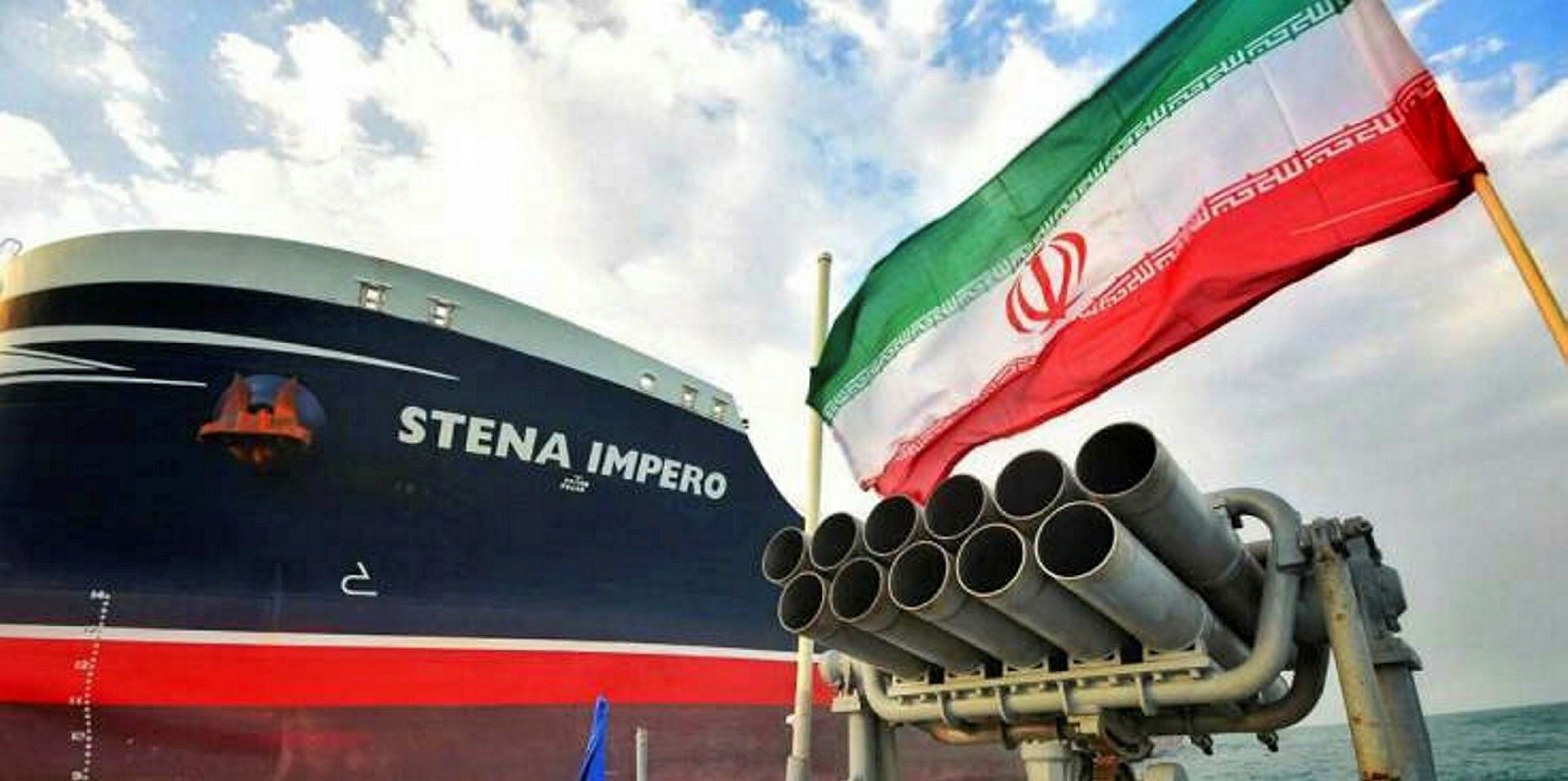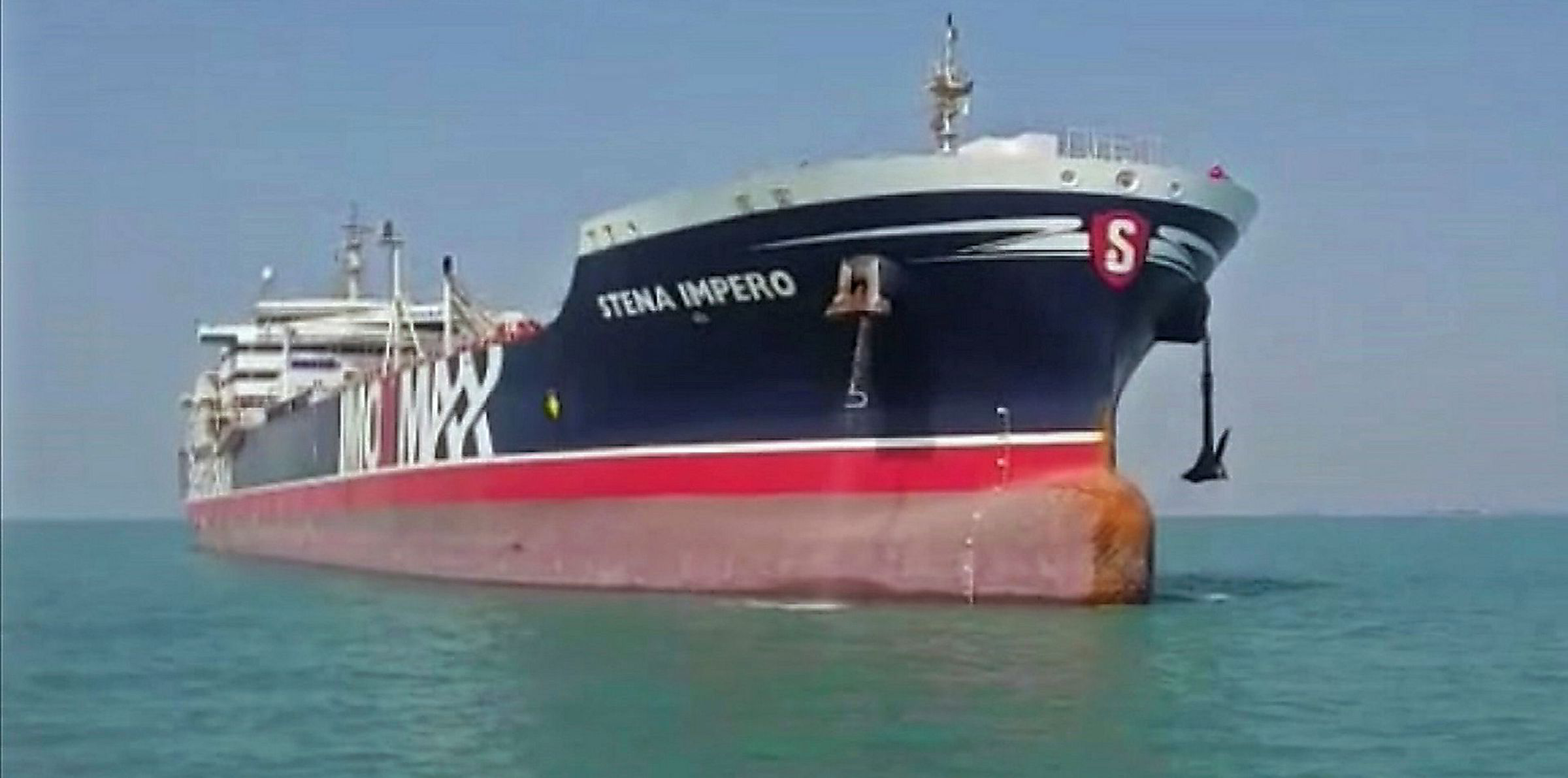The Iranian government remains insistent that its seizure of the South Korean chemical tanker Hankuk Chemi on Monday, just days before high-level diplomatic negotiations between the two countries, is purely coincidental.
Nobody seems to be buying this line. There are too many precedents involving Iran's seizure of ships to further political and diplomatic aims.
This unique approach by Iran to hold ships on an allegation of breaching maritime law to force diplomatic negotiations has been used to surprisingly good effect in the past.
But it has been sparingly deployed in a manner too unpredictable to allow it to be considered a wider threat to shipping.
In the case involving the 17,400-dwt chemical tanker Hankuk Chemi (built 2000), Tehran maintains that the seizure is a “technical issue” involving pollution.
Ministry of Foreign Affairs spokesman Saeed Khatibzadeh said that Iran, like any other country, is sensitive about the protection of its marine environment and is prepared to confront any violation of it.
It remains unclear how the tanker caused the alleged pollution, and where. No concrete details have been released.
Money matters
Statements by other senior Iranian government sources to local media this week pointed to a bigger issue at hand — the $7bn of Iranian oil money that has been kept in South Korean banks since the reimposition of US sanctions.
The money, some Iranian politicians said, was needed to buy Covid-19 vaccines.
Immediately after the Hankuk Chemi’s seizure, the South Korean government revealed that it would be dispatching a delegation led by first vice foreign minister Choi Jong-Kun to Tehran for high-level diplomatic discussions over “mutual bilateral issues”.
The diplomatic mission had been lined up before the vessel was seized, according to official sources in both countries.
Choi leaves for Tehran on Sunday. Securing the release of the ship is his top priority, according to the Korea Herald newspaper.
Other bilateral issues, especially the seized money, are what the Iranian officials meeting Choi and his delegation are more likely to be interested in talking about.
Bargaining chips
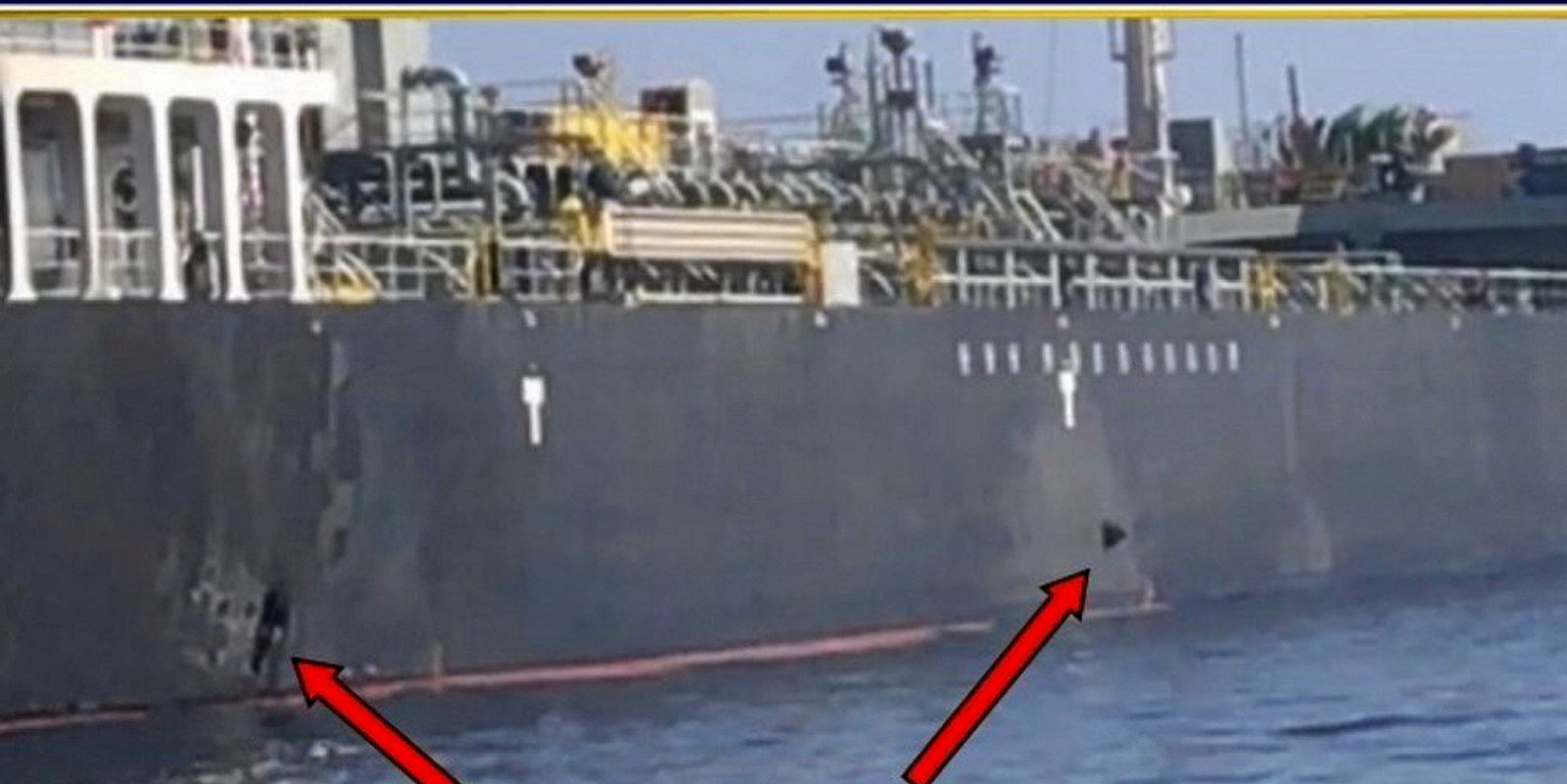
Many observers believe that years of political and diplomatic isolation have led Iran to resort to drastic measures such as ship seizures to force foreign governments’ hands at the negotiating table.
"As we see it, it is part of the ongoing 'tit for tat' between Iran and the West and other countries since the summer of 2018, and not a general increase in threat levels per se, although it is around the one-year anniversary of the killing of General Qasem Soleimani," said Hans Tino Hansen, founder and chief executive of security consultancy Risk Intelligence.
Soleimani, a senior member of Iran's Islamic Revolutionary Guard Corps, was assassinated in a targeted US drone strike in Baghdad.
"The action of the Islamic Revolution Guard Corps is well-timed around this and just prior to the planned visit of the South Korean foreign affairs vice minister, similar to the attack on the Japanese [vessel] Kokuka Courageous in June 2019, while the Japanese prime minister Shinzo Abe was in Tehran," Hansen said.
Precedent
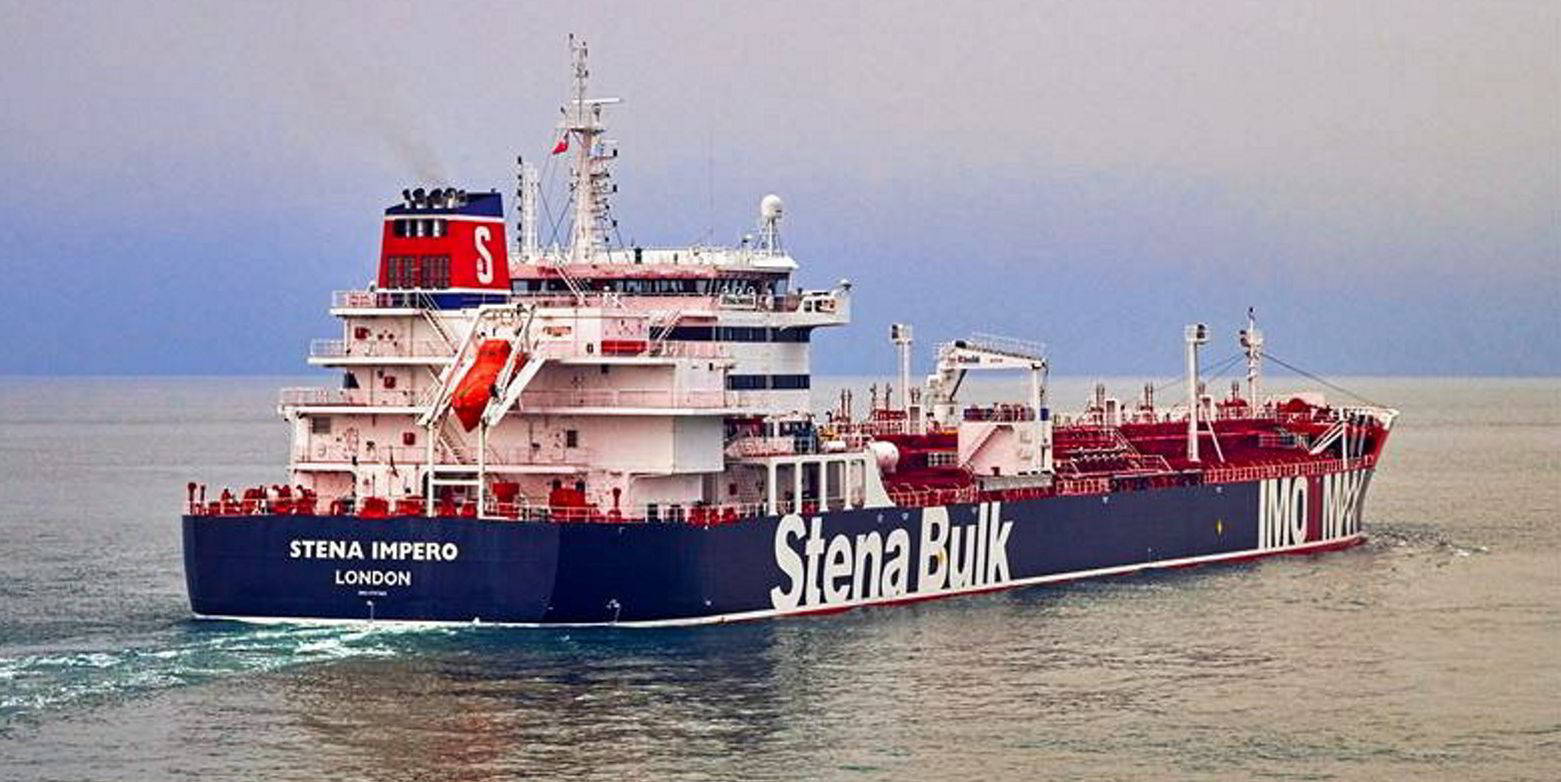
The situation with the Hankuk Chemi is likely to play out in a similar manner to that of the 49,700-dwt UK-flag product tanker Stena Impero (built 2018), which Iran seized in July 2019 against claims it had sunk an Iranian fishing boat.
Erik Hanell, president and chief executive of Stena Bulk, said at the time there was no evidence that the ship had breached any maritime rules or regulations or been involved in any collision.
That the Stena Impero was seized just two weeks after British marines detained an Iranian tanker, the 300,600-dwt Grace 1 (built 1997), off Gibraltar, was not believed by most political observers to be, as Iran claimed, just a coincidence.
Intense diplomatic negotiations saw both vessels eventually released.
How long the negotiations between Iran and South Korea over the Hankuk Chemi drag on for remains to be seen, but with US president-elect Joe Biden set to take office in less than two weeks, the situation for the South Korean negotiators may become easier.
Biden has vowed to return the US to the Iran nuclear deal that outgoing president Donald Trump withdrew from two years ago, and his less antagonistic stance could make it easier for Seoul to accede to Iranian requests such as releasing the oil money.
